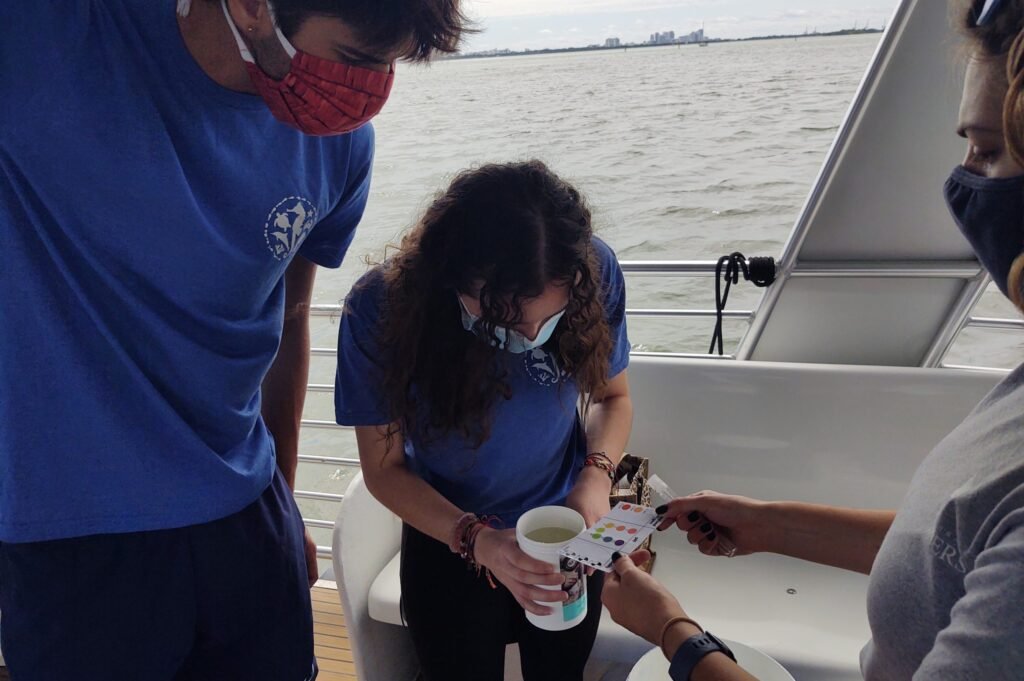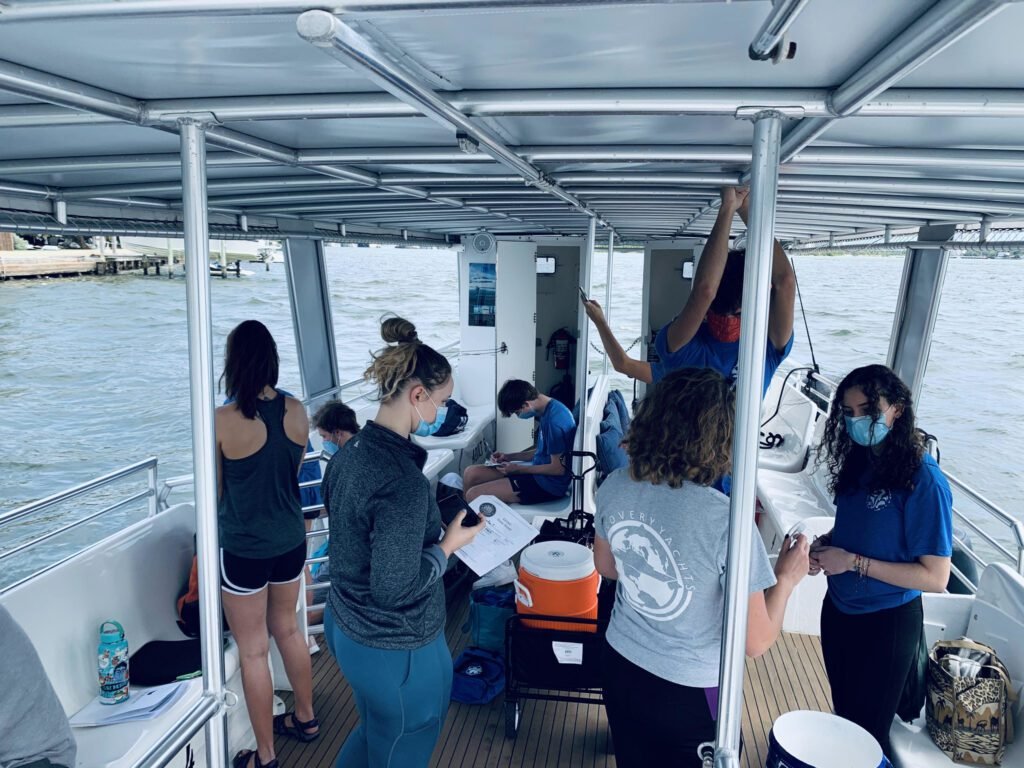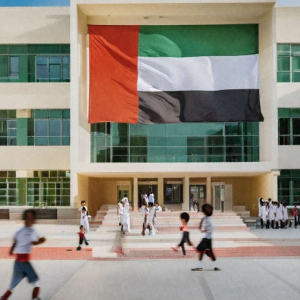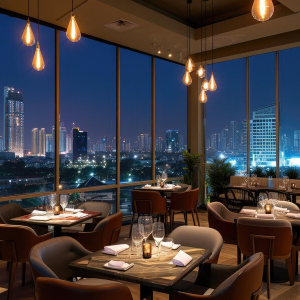Umm Al Quwain (UAQ) has taken a major step in marine education by launching the first floating classroom in the UAE. Moored close to the mangrove forests, this innovative classroom is now open for school and university trips, offering a unique way for students to connect with marine life and learn outside the traditional walls.
The floating classroom is designed to inspire curiosity, teach sustainability, and promote environmental awareness. It’s part of UAQ’s wider plan to become a hub for eco-tourism and marine research in the UAE. And it’s already making waves in the education sector.
A Classroom Like No Other
Unlike any typical school room, this floating classroom is anchored on the water right next to UAQ’s lush mangroves. The classroom has been specially designed to float safely, with seats, tables, and learning equipment all fitted securely onboard. Students can listen to lessons while being surrounded by the sounds of birds and the gentle movement of the sea.

The structure is powered using solar energy, making it environmentally friendly. It also includes observation decks where students can see marine creatures in their natural habitat. The classroom is built to fit about 25 to 30 students at a time, making it perfect for group educational trips.
Why It Matters

This floating classroom is more than just a fun new learning space—it is a powerful step towards raising awareness about the environment. The goal is to help students understand the importance of oceans, mangroves, and marine biodiversity. Being so close to nature gives young learners the chance to truly connect with the subject matter.

UAQ authorities hope that this experience will shape future generations who are more aware and responsible when it comes to protecting nature. It also opens the door for more hands-on research opportunities, especially for university-level students studying marine biology or environmental science.
A Perfect Spot Near the Mangroves
The classroom is docked near the protected mangrove area in UAQ, which is one of the most peaceful and naturally rich spots in the emirate. These mangroves are home to many types of birds, fish, and plant life. It’s the perfect outdoor lab where students can see how ecosystems work and how species depend on one another.
Mangroves also play a key role in protecting the coastline from erosion and absorbing carbon dioxide, helping fight climate change. Educators say learning about mangroves while actually being there is a far more effective method than just reading about them in textbooks.
A Boost for Education and Tourism
While the main aim is education, this floating classroom is also expected to boost eco-tourism in Umm Al Quwain. Tourists, nature lovers, and families interested in marine life may soon be able to visit the site as part of guided educational tours. This could become a popular destination, especially for school field trips and university research visits.
This initiative aligns with UAQ’s vision to develop more sustainable tourism projects and bring attention to the emirate’s natural beauty. It also shows how education and tourism can work together for a bigger cause—raising awareness about the environment.
Designed With Safety and Learning in Mind
Authorities have taken safety seriously. The floating classroom was designed to meet the highest standards in construction, safety, and accessibility. Life jackets are provided for all participants, and trained guides accompany every trip. The boat remains stationary while classes are in session, ensuring stability.
Teachers will find everything they need onboard—from projectors and lab tools to samples of marine species. There is even a small wet lab where basic water testing and sample collection can take place. This setup helps bring lessons alive and gives students a hands-on experience with marine science.
Community and Government Support

The project was developed with support from local authorities, environmental groups, and educational institutions. It has been welcomed by schools across the UAE, with many already planning visits. The floating classroom is being seen as a model project that could inspire similar efforts in other emirates.
Leaders in UAQ say they are proud to offer something so unique. “We want to make environmental education accessible and engaging,” said one of the officials involved in the launch. “This classroom connects students to nature in a way that will stay with them for life.”
Looking Ahead
This floating classroom is just the beginning. UAQ is planning more outdoor learning projects in the coming years. These may include guided nature trails, marine research camps, and even floating science labs. With each step, UAQ is making it clear that learning doesn’t have to be limited to four walls.
The response so far has been very positive. Teachers say students are more excited and focused during outdoor lessons. Many students have said it was the first time they had seen mangroves up close or learned about marine life directly from the field.
A Model for the Future
As the UAE continues to push for innovation in education and sustainability, UAQ’s floating classroom is a powerful example of how creativity and purpose can come together. It’s a space where students not only learn about the sea—they also learn to love and protect it.
The floating classroom is not just a boat on water. It’s a symbol of hope, of the UAE’s growing environmental efforts, and of a new generation ready to take on the responsibility of caring for the planet.
Also read: Dubai Welcomes First Crypto-Friendly Residential Tower












